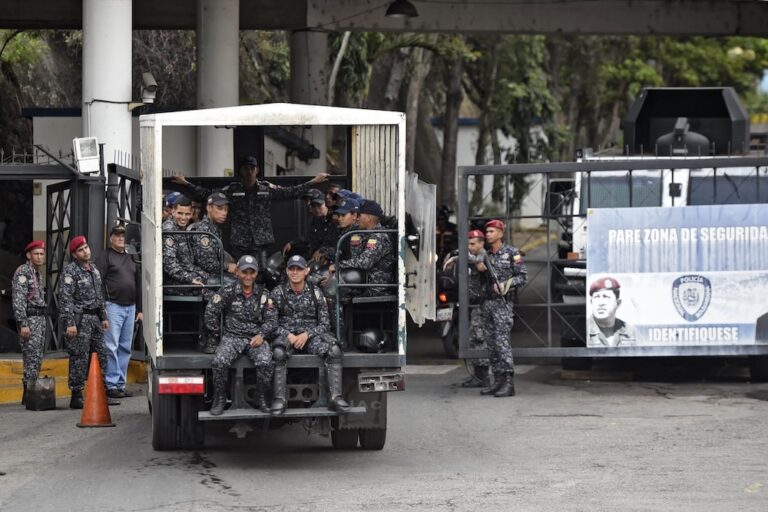IPYS Venezuela noted that it has not and will not carry out programmes that are requested by third parties, or that do not correspond to the institutional aims of the organisation.
(IPYS/IFEX) – In a press release, IPYS Venezuela responded to accusations about its sources of funding:
15 July 2010 – It is no crime in Venezuela to work with funds provided by international cooperation agencies. Our organization, Instituto Prensa y Sociedad de Venezuela (IPYS Venezuela), registered publicly as a Civil Association, complies with Venezuelan regulations and is guided by the standards followed by Non Governmental Organizations (NGOs) around the world in its relationships with its sources of financing.
Since it was founded in 2002, IPYS Venezuela has been working on three relevant areas for the development of better journalistic practices in the country: the Monitoring of Press Freedom, Training Journalists (especially in the field of investigative journalism) and the Promotion of the Use of Access to Public Information as a Journalistic Tool. These activities, which include workshops, forums, talks, prizes, investigations, etc., have been carried out with the financial support of different contributors from different places and with different purposes that include both foreign state entities and private foundations, and multilateral organizations.
The programs supported by these activities were conceived and designed in complete freedom by those responsible for IPYS Venezuela, who present them to different contributors who regularly accept or refuse to support them, as is their right. IPYS Venezuela has not and will not carry out programs that are requested by third parties, or under the conceptual or operational control of third parties, or that do not correspond to the institutional aims of the organization, as stated in its strategic matrix. It reports, of course, to its contributors, about the management of the resources contributed and is regularly audited in the interests of administrative transparency.
Every activity carried out by IPYS Venezuela is done transparently. Journalists, researchers and academics of every persuasion participate, whether as trainees or instructors, as can be verified by any Venezuelan citizen. At IPYS Venezuela we believe journalistic practices can improve. News can be better presented, coverage can be more professional, in-depth, relevant and independent of any authority. This is why we are guided in our work by the principles of plurality and transparency in all our activities.
IPYS Venezuela is made up of Venezuelan journalists with diverse experiences and visions. They are all prestigious professionals in their own right and their prestige, always linked to honesty and independence, was acquired before the political process that currently affects Venezuela.
Its constitution was modeled on that of Instituto Prensa y Sociedad, to which it is affiliated, created in Perú in 1993 by some of the best reporters in that country to defend journalism in the midst of uttered (and fulfilled) threats issued by Alberto Fujimori’s authoritarian regime.
During its eight years of existence, IPYS Venezuela has actively participated in international events and networks, and has been recognized by Latin American and global organizations.
The contributions of international entities that already operate in Venezuela are and will continue to be of great importance, while local private enterprises do not have the capacity – discouraged by the political and economic environment – to make major contributions to organizations that call themselves “Nongovernmental” (as is the case of IPYS Venezuela) and important private international actors hesitate to incorporate Venezuela into their agendas because of the hostile attitude towards NGOs they detect in the country.
Threats, slander and defamatory campaigns initiated with absolute impunity by political agents against IPYS Venezuela and other Venezuelan civil society organizations, which are trying to present them as unpatriotic or as simple executors of foreign interests, because they finance their activities with funds that come from abroad, only reaffirm this hostile climate.


